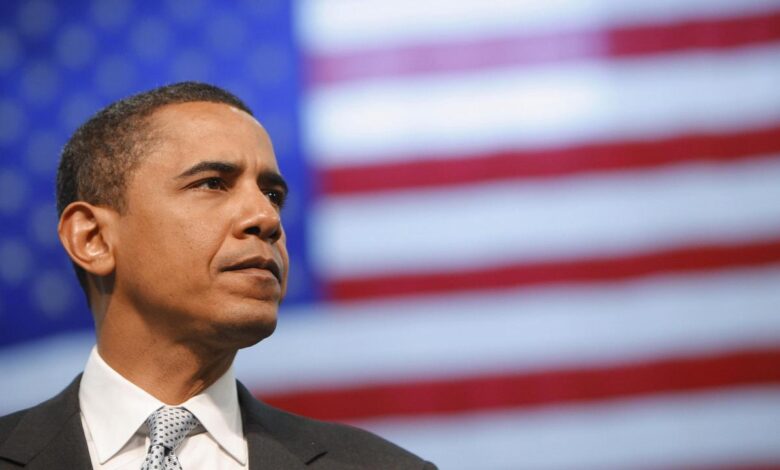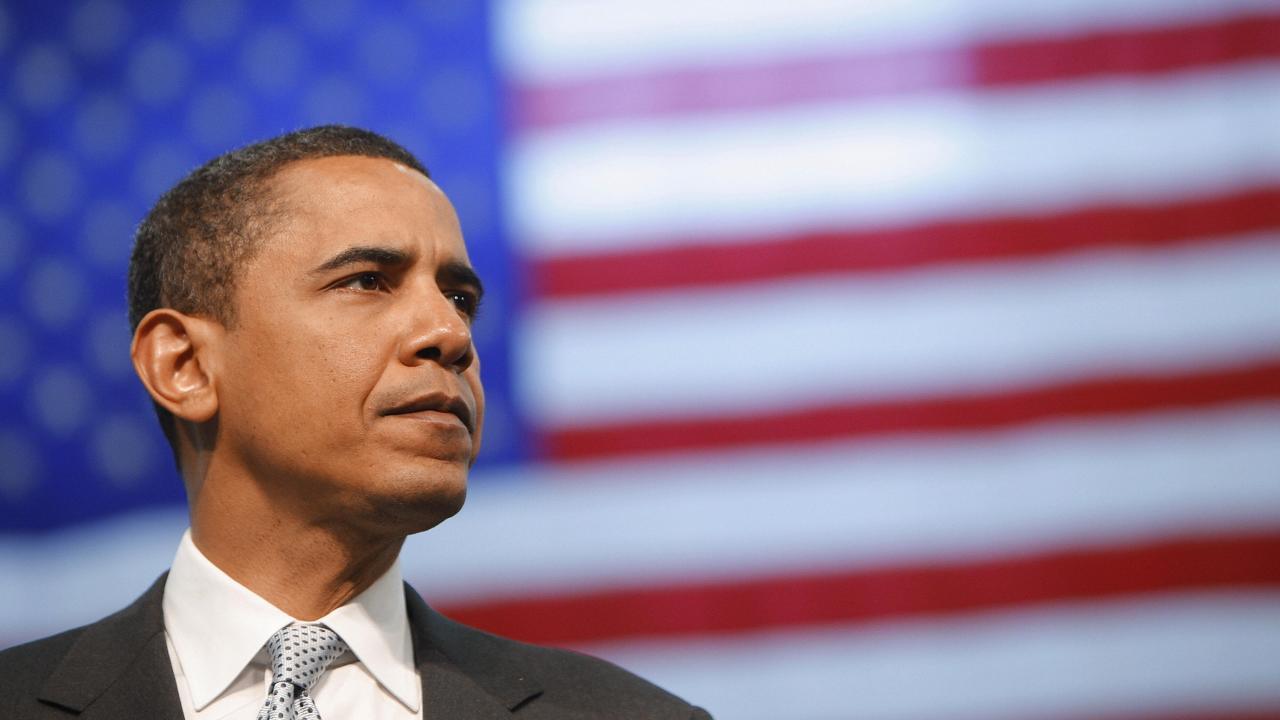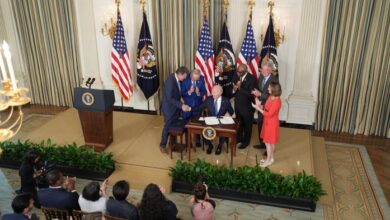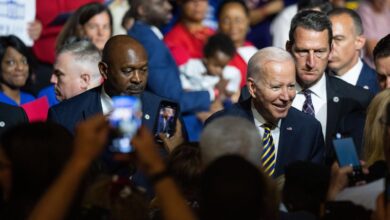
Obamas Biggest Lesson: What He Learned as President
Barack Obama reminds everyone of the biggest lesson he learned as president: the importance of empathy and understanding. As the first African American president, Obama navigated a complex political landscape, facing both immense support and fervent opposition. He witnessed firsthand the power of unity and the dangers of division, and through his experiences, he gained invaluable insights into the human condition.
In this article, we delve into Obama’s reflections on his presidency, exploring the pivotal lesson he learned and its profound impact on his leadership. We’ll examine how this lesson can be applied to everyday life, fostering more meaningful connections and creating a more just and equitable world.
Barack Obama’s Presidential Experience

Barack Obama’s presidency was marked by both significant achievements and substantial challenges, shaping his legacy as the 44th President of the United States. He navigated a tumultuous period in American history, facing economic crises, global conflicts, and evolving domestic issues.
His presidency provided a unique lens into the immense pressures and responsibilities of the highest office in the land.
Key Accomplishments During Obama’s Presidency
Obama’s presidency saw the passage of landmark legislation and the implementation of transformative policies. His key accomplishments include:
- The Affordable Care Act (ACA):This legislation, also known as Obamacare, aimed to expand health insurance coverage to millions of Americans. It introduced provisions like individual mandates, subsidies, and health insurance marketplaces. The ACA has been credited with significantly reducing the number of uninsured Americans.
- The American Recovery and Reinvestment Act of 2009:This economic stimulus package was enacted in response to the Great Recession. It included tax cuts, infrastructure spending, and aid to state and local governments. The act is credited with helping to stabilize the economy and prevent further economic decline.
- The Dodd-Frank Wall Street Reform and Consumer Protection Act:This legislation was passed to reform the financial industry and prevent another financial crisis. It established the Consumer Financial Protection Bureau, increased regulation of financial institutions, and aimed to protect consumers from predatory lending practices.
- The Paris Agreement:Obama played a crucial role in securing the Paris Agreement, a global climate agreement that aims to limit global warming to well below 2 degrees Celsius. The agreement was signed by nearly 200 countries and represents a significant step towards addressing climate change.
Barack Obama’s recent reminder about the importance of listening to different perspectives resonated with me. It reminded me of how much I appreciate music that takes me on a journey, exploring unexpected sounds and ideas. This new album makes beautiful music out of gravity, the elements, and photosynthesis , and it’s a perfect example of that kind of sonic exploration.
It’s a reminder that even the most basic elements can be combined in surprising ways to create something truly beautiful, much like Obama’s message about embracing diverse viewpoints.
- The Iran Nuclear Deal:This agreement, negotiated by Obama’s administration, placed restrictions on Iran’s nuclear program in exchange for the lifting of economic sanctions. The deal was controversial but aimed to prevent Iran from developing nuclear weapons.
Challenges Faced During Obama’s Presidency
Obama’s presidency was not without its challenges. He faced a range of domestic and international issues, including:
- The Great Recession:The economic downturn that began in 2008 posed a significant challenge for Obama’s administration. The recession led to high unemployment, foreclosures, and a decline in consumer spending.
- The War on Terror:Obama inherited the ongoing War on Terror, which had begun after the September 11th attacks. He continued military operations in Afghanistan and Iraq, while also authorizing the use of drones in targeted killings.
- The Rise of ISIS:The emergence of the Islamic State of Iraq and Syria (ISIS) presented a new challenge for Obama’s administration. ISIS gained control of territory in Iraq and Syria, carrying out terrorist attacks and committing human rights abuses.
- The Deepwater Horizon Oil Spill:The 2010 oil spill in the Gulf of Mexico was a major environmental disaster. Obama’s administration faced criticism for its response to the spill, which resulted in significant damage to marine life and coastal ecosystems.
- Political Polarization:Obama’s presidency coincided with a period of increasing political polarization in the United States. He faced strong opposition from Republicans, who often blocked his legislative agenda.
The Unique Pressures and Responsibilities of Being President, Barack obama reminds everyone of the biggest lesson he learned as president
The presidency is the most powerful and demanding office in the world. The President is responsible for leading the nation, commanding the military, and shaping foreign policy. The pressures of the job are immense, and the responsibilities are weighty.
- Decision-Making Under Pressure:The President must make difficult decisions on a daily basis, often under immense pressure and scrutiny. These decisions can have significant consequences for the nation and the world.
- Managing a Large and Complex Government:The President is responsible for overseeing the executive branch of the federal government, which includes a vast bureaucracy and numerous agencies. Managing this complex system requires strong leadership and organizational skills.
- Leading a Diverse Nation:The President must represent the interests of all Americans, regardless of their background or beliefs. This requires the ability to build consensus, compromise, and communicate effectively.
- Navigating the Global Stage:The President is the face of the United States on the world stage. He must negotiate with foreign leaders, address international crises, and promote American interests abroad.
- Dealing with the Media:The President is constantly under the scrutiny of the media. He must navigate the demands of the press, manage public perception, and communicate effectively with the American people.
The Biggest Lesson Learned
Barack Obama, in his memoir “A Promised Land,” reflects on his presidency and identifies the most profound lesson he learned during his time in office: the importance of empathy and understanding in navigating the complexities of governance and leading a diverse nation.
This lesson, he emphasizes, transcended political ideologies and partisan divides, shaping his approach to leadership and impacting his decisions throughout his presidency.
The Significance of Empathy in Leadership
Empathy, Obama argues, is not merely a personal virtue but a crucial element of effective leadership. It allows leaders to connect with the experiences and perspectives of others, fostering a deeper understanding of their concerns and aspirations. This understanding, in turn, enables leaders to craft policies and make decisions that resonate with the needs and values of the people they serve.
Applying the Lesson to Everyday Life: Barack Obama Reminds Everyone Of The Biggest Lesson He Learned As President

President Obama’s biggest lesson learned, the importance of empathy and understanding, transcends the realm of politics and applies powerfully to everyday life. It offers a framework for building stronger relationships, navigating conflicts effectively, and fostering a more harmonious society.
Personal Relationships
Empathy and understanding are the cornerstones of healthy personal relationships. By stepping into the shoes of others, we gain a deeper appreciation for their perspectives, motivations, and experiences. This fosters greater compassion and understanding, paving the way for more meaningful connections.
Barack Obama, reflecting on his presidency, emphasized the importance of listening to diverse perspectives and finding common ground. This lesson, I believe, is more relevant than ever, especially when it comes to navigating the ongoing pandemic. As we move forward, it’s time to think outside the mask mandate its time to think outside the mask mandate and consider a more nuanced approach that acknowledges individual needs and circumstances, just as Obama advocated for during his time in office.
Strategies for Cultivating Empathy in Personal Relationships
- Active Listening:Pay undivided attention to what others have to say, both verbally and nonverbally. Seek to understand their point of view without interrupting or jumping to conclusions.
- Asking Open-Ended Questions:Encourage deeper dialogue by asking questions that go beyond simple yes/no answers. For example, instead of asking “Did you have a good day?”, try “What was the highlight of your day?”.
- Empathetic Validation:Acknowledge and validate the emotions of others, even if you don’t agree with their perspective. Phrases like “I understand why you feel that way” or “That must have been difficult” can go a long way in building trust and connection.
Professional Interactions
In the workplace, empathy and understanding are crucial for fostering a collaborative environment, resolving conflicts effectively, and building trust with colleagues and clients.
Barack Obama’s recent reflection on his presidency reminded me of a powerful lesson: the importance of collaboration. It’s a lesson that resonates even as we celebrate the groundbreaking opening of the liquid mirror telescope in India , a project that required international cooperation to achieve.
Just like Obama’s presidency, the success of this telescope underscores the power of working together to reach new heights.
Strategies for Implementing Empathy in Professional Settings
- Constructive Feedback:When delivering feedback, focus on the behavior and its impact, rather than personal attacks. Use “I” statements to express your perspective and offer solutions for improvement.
- Active Listening in Meetings:Engage in active listening during meetings, paying attention to the perspectives of all participants. This fosters a more inclusive and productive environment.
- Empathetic Communication with Clients:Understand the needs and concerns of your clients. Respond to their questions and requests with patience and understanding, building trust and rapport.
Impact of Obama’s Lesson
President Obama’s lesson of seeking common ground and finding shared values can have a profound impact on American society, fostering a more inclusive and equitable world. This lesson encourages individuals to move beyond partisan divides and engage in constructive dialogue, promoting understanding and collaboration.
Impact on American Society
The impact of this lesson can be seen in various aspects of American society. By prioritizing shared values and common goals, it can contribute to a more cohesive and unified nation. This approach can foster a sense of shared purpose and encourage collaboration across political and social divides.
It can also lead to a more informed and engaged citizenry, as individuals are encouraged to understand different perspectives and participate in constructive dialogue.
Promoting Inclusivity and Equity
President Obama’s lesson can be instrumental in promoting inclusivity and equity. By emphasizing shared values, it can help dismantle prejudice and discrimination, creating a more just and equitable society. This approach can lead to the dismantling of systemic barriers that prevent certain groups from achieving their full potential.
It can also foster a culture of empathy and understanding, where individuals are valued for their unique contributions.
Application to Social and Political Issues
Imagine a scenario where a community is grappling with the issue of affordable housing. By applying President Obama’s lesson, community leaders could engage in a dialogue with stakeholders, including residents, developers, and policymakers. They could identify shared values, such as the need for safe and affordable housing for all, and work together to find solutions that address the needs of the community.
Closure
Obama’s message of empathy and understanding resonates deeply in today’s polarized world. By embracing his lesson, we can foster a more compassionate and inclusive society, working together to address the challenges we face. As Obama himself has said, “The arc of the moral universe is long, but it bends toward justice.” Let us strive to bend that arc, one act of empathy at a time.






